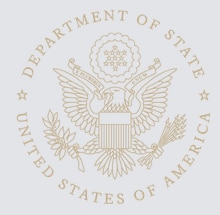Background
The Department of State submits an annual Report to Congress on International Religious Freedom in compliance with section 102(b) of the International Religious Freedom Act of 1998 (P.L. 105-292), as amended. This report, also known as the International Religious Freedom Report, describes the status of religious freedom, government policies violating religious belief and practices of groups, religious denominations and individuals, and U.S. policies promoting religious freedom in nearly every country and territory throughout the world. The report covers the period between January 1 and December 31 of the previous calendar year.
Latest Report
- 2022 Report On International Religious Freedom
- 2022 Report on International Religious Freedom: Serbia
 Process and Purpose
Process and Purpose
U.S. embassies prepare the initial drafts of country chapters based on information from government officials, religious groups, nongovernmental organizations, journalists, human rights monitors, academics, media, and others. The Office of International Religious Freedom, based in Washington, collaborates in collecting and analyzing additional information, drawing on its consultations with foreign government officials, domestic and foreign religious groups, domestic and foreign nongovernmental organizations, multilateral and other international and regional organizations, journalists, academic experts, community leaders, and other relevant U.S. government institutions.
The State Department’s guiding principle is to ensure that all relevant information is presented as objectively, thoroughly, and fairly as possible. Motivations and accuracy of sources vary, however, and the Department of State is not in a position to verify independently all information contained in the reports. To the extent possible, the reports use multiple sources to increase comprehensiveness and reduce potential for bias. The views of any particular source are not necessarily those of the United States government. The report is designed to spotlight examples of government and societal action that typify and illuminate issues reported in each country. Specific inclusions or omissions should not be interpreted as a signal that a particular case is of greater or lesser importance to the U.S. government, or that a case is the only available example. Rather, the goal is to shed light on the nature, scope, and severity of actions impacting religious freedom through illustrative examples.









